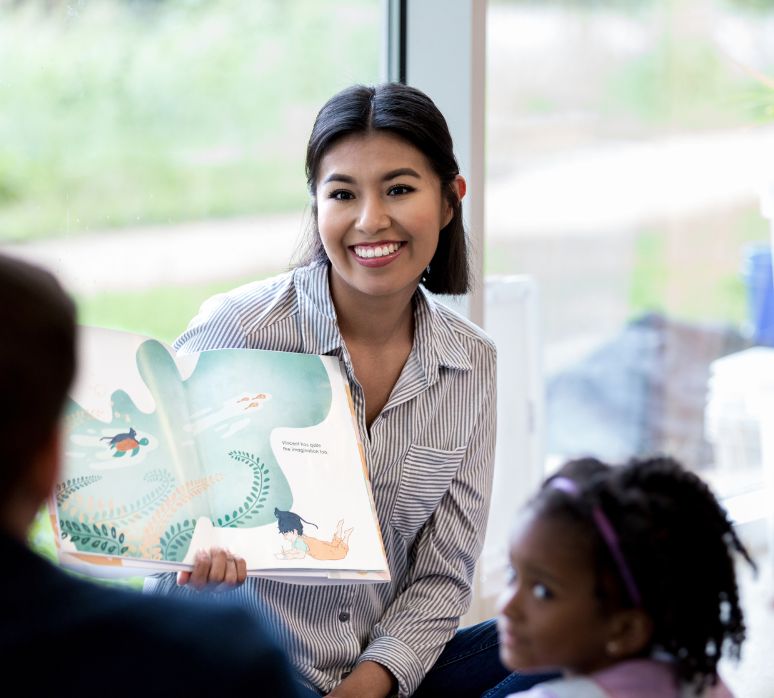教育工作者如何提高读写能力,培养阅读的乐趣?

How Can Educators Improve Literacy and Instill a Joy of Reading?
The science of reading is at the center of a national dialogue about literacy instruction. Nancy Nelson and Kate Frankel discuss.
Students need a solid foundation in literacy to succeed in all subjects—not just in English or other language classes. Strong literacy skills also enable them to thrive in other areas of their lives, whether they are moving up the career ladder or navigating bureaucracy.
The importance of literacy instruction has led to intense debates among education experts about the most effective methods to teach students. One approach, known as the “science of reading,” focuses on phonics, sound awareness, decoding, and vocabulary recognition. And while some schools use this approach to literacy instruction, other schools use the “whole language” method, which focuses on learning words from context and identifying contextual cues.
For the fourth webinar in the Conversations with the Dean series, BU Wheelock Dean David Chard spoke to assistant professor Nancy Nelson and associate professor Kate Frankel about the science of reading, ways to equip future teachers to use research-backed methods to teach reading, and the role literacy education can play in students’ lives in the classroom and beyond.
Highlights from the Conversation
Creating connections through literacy
Reading—and literacy more broadly—[are] deeply personal to many of us, maybe all of us. And I think that’s maybe because we use literacy to do things in the world, we use it to connect to other people and to connect to people who came before us.
Kate Frankel
Building a strong foundation
Kids in the early grades really need explicit phonics, phonemic awareness, [and] basic skills instruction in order to be able to grapple with these other areas of literacy that are so important [and] are much more difficult to teach. We know how to teach these early skills effectively early on. We should be able to do that and move on to these areas, and not have to focus so much on those basic skills.
Nancy Nelson
Creating more positive experiences
For a lot of students, their histories of reading instruction and the experiences they’ve had can be quite negative. [We try to] rethink what we’re doing in those spaces in ways that really honor who they are—their identities and their experiences and their brilliant ideas about literacy.
Kate Frankel
Conversations with the Dean are a series of webinars hosted by Dean Chard that explore some of the most pressing topics in education. Learn more about Conversations with the Dean.
Comments & Discussion
Boston University moderates comments to facilitate an informed, substantive, civil conversation. Abusive, profane, self-promotional, misleading, incoherent or off-topic comments will be rejected. Moderators are staffed during regular business hours (EST) and can only accept comments written in English. Statistics or facts must include a citation or a link to the citation.